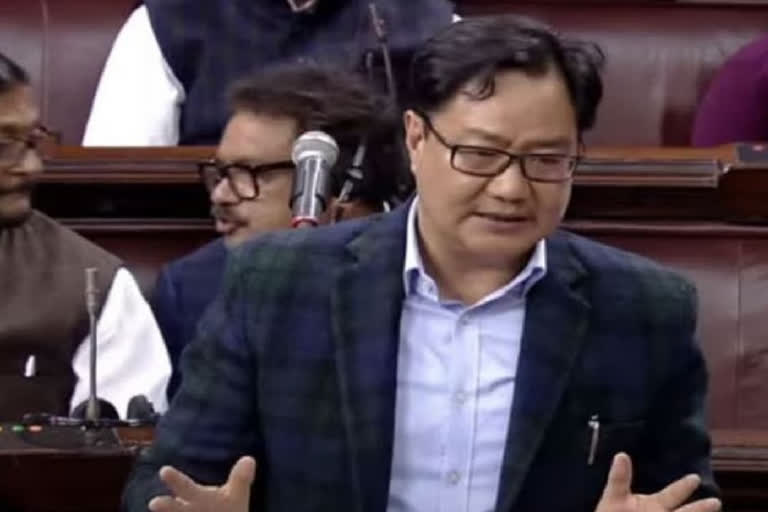New Delhi: Law Minister Kiren Rijiju on Saturday invoked the constitutional "Lakshman Rekha" guiding different institutions, including the executive and the judiciary, and wondered that if judges become part of administrative appointments, who would carry out judicial work. Rijiju was responding to a question on a Supreme Court bench directing the government to set up a panel comprising the prime minister, the chief justice of India and the leader of opposition in the Lok Sabha to select the chief election commissioner (CEC) and election commissioners till a law is in place for the same.
"The appointment of election commissioners is prescribed in the Constitution. Parliament has to enact a law. Accordingly, the appointment has to be done. I agree that there is no enactment for that in Parliament, there is a vacuum," the minister said at the media Conclave. Rijiju said he is not criticising the apex court judgment or talking about its "repercussions" or what the government is going to do on the issue.
"... But what I am saying is that if the CJI or judges of India sit on every important appointment, who will carry forward the judiciary's work? There are so many administrative matters in the country. So we have to see that judges are primarily there to deliver judicial work. They are there to deliver judicial orders by giving justice to people," he said.
The minister felt that if judges got involved in administrative work, they would have to face criticism. He said the principle of justice will be compromised if a judge ends up hearing a matter of which he or she was a part. "Suppose you are the chief justice or a judge. You are part of an administrative process that will come into question. The matter comes to your court. Can you deliver a judgment on a matter you were part of? The principle of justice itself will be compromised. That is why the Lakshman Rekha is very clear in the Constitution," Rijiju said.
In a landmark verdict aimed at insulating the appointment of the CEC and election commissioners from the executive's interference, the Supreme Court ruled that their appointments will be effected by the president on the advise of a committee comprising the prime minister, the leader of opposition in the Lok Sabha and the CJI.
A five-judge Constitution bench headed by Justice KM Joseph, in a unanimous verdict pronounced earlier this month, held that this norm will continue to hold good till a law on the issue is enacted by Parliament. A vacancy will arise in the Election Commission early next year when Election Commissioner Anup Chandra Pandey demits office on February 14 on attaining the age of 65 years. (PTI)
(This story has not been edited by ETV Bharat and is auto-generated from a syndicated feed.)



